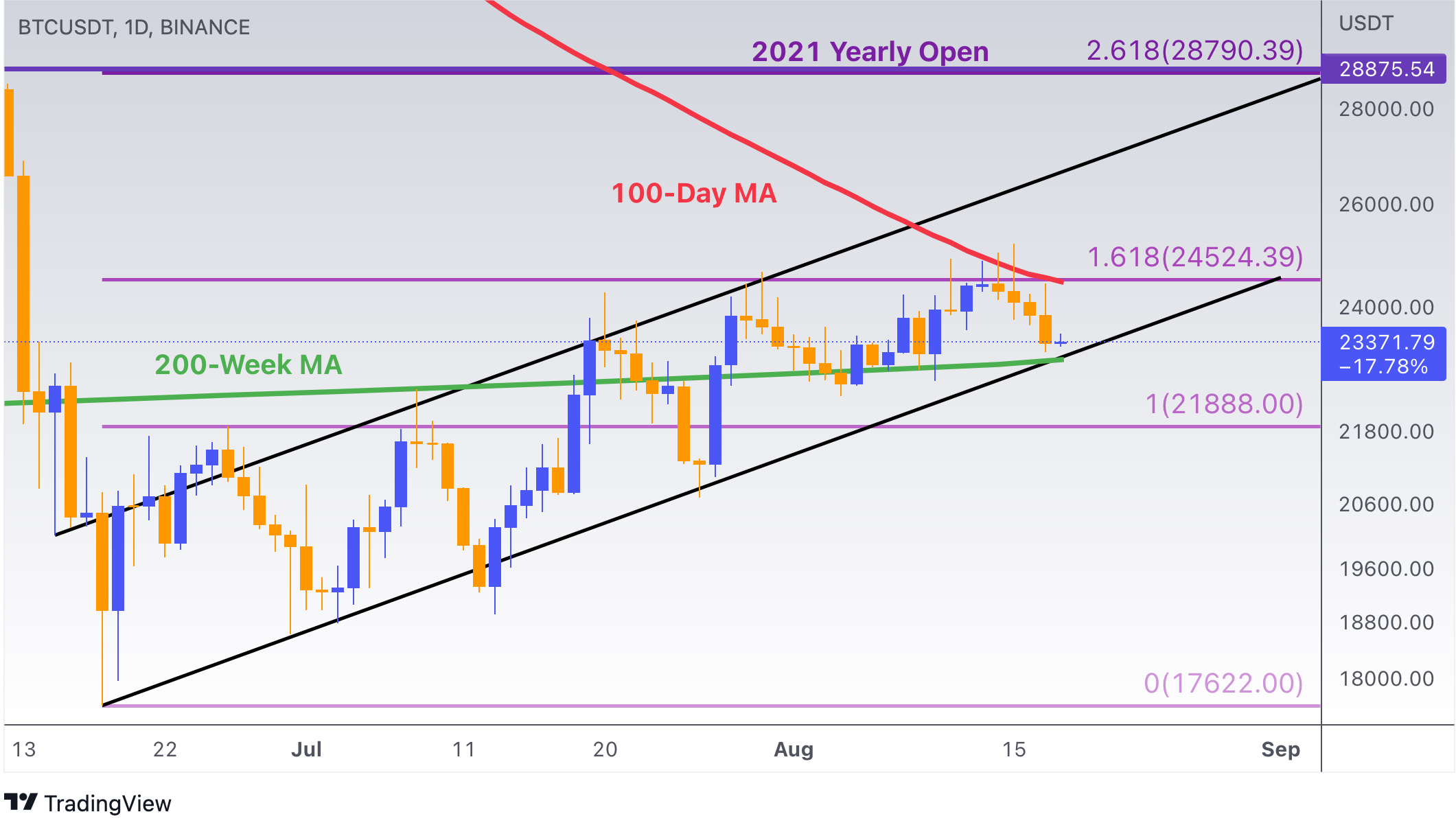
The connection between traditional finance and crypto is more closely linked than ever before as institutional demand for our treasured asset class rises rapidly. Last week we saw BlackRock, the world’s largest asset manager with approximately $8.5 billion under management, endorse bitcoin by offering a spot bitcoin private trust to their U.S-based investors. Being the largest asset manager in the world, it could be likely that all of their competitors will quickly follow suit to ensure they also offer the capability to their clients.
To provide additional access, BlackRock also partnered with Coinbase to provide infrastructure for their institutional clients to invest in crypto assets. BlackRock’s industry leading portfolio management software, Aladdin, is used by over 200 of the world’s largest institutional investors and manages over $21 trillion in assets. Aladdin and Coinbase will combine forces to offer a seamless portfolio management system for crypto, with Coinbase handling the execution and custody of the assets whilst Aladdin will handle the portfolio management aspects all through the Aladdin interface. It could be argued this is a major step in proving the legitimacy of bitcoin, especially with BlackRock being the main influencer on ESG investing. It additionally showcases the demand for exposure to the asset from BlackRock’s institutional clients.
Tornado Cash – the popular mixing service that enables on-chain privacy – came under heavy fire last week from governments globally. The US Treasury Department’s Office of Foreign Asset Control (OFAC) sanctioned the protocol – leading to any American using the site breaking sanction laws. The sanction was argued due to the allegedly high number of illicit funds being laundered through the protocol and to prevent hacker groups, such as the Lazarus Group, from laundering stolen crypto funds. Dutch authorities arrested one of the protocol’s developers and have stated they will take further action against DAOs that may enable money laundering. Could this be the start of the war on Decentralised Finance (DeFi)?
The implications of being linked to, or seen facilitating on-chain activity, with a wallet in connection with Tornado Cash have also prompted “decentralised” protocols to ban addresses from using their services to remain compliant with regulatory bodies. Due to the transparency and accessibility of crypto, any individual can send anything to any wallet address, with the owner unable to stop their wallet from receiving transactions.
The banning of Tornado Cash sparked an onslaught of withdrawals from the protocol to famous personas’ wallets, such as Jimmy Fallon and Dave Chappelle, leading to them having broken sanctions laws and being punishable for up to 30 years in prison… technically speaking. Aave, the popular lending and borrowing protocol, banned the wallet of the founder of Tron, Justin Sun, as he was sent funds from Tornado Cash by the same unknown entity.
The act of Aave banning wallet addresses has created a stir in the crypto community, with many individuals doubting how decentralised these protocols actually are with their ability to intervene and ban wallet addresses. Some commentators have argued the act of government submission completely contradicts the ethos of crypto and DeFi. Coin Centre, the crypto privacy advocacy group, has stated they will challenge the sanction as it “exceeds [OFAC’s] statutory authority”.
Ever since crypto began, nation-states using crypto for their own benefit was seen as the final boss before global adoption. Last week Iran funded an import worth $10 million using crypto. Their usage has been instigated due to them being the second most sanctioned country in the world behind Russia – limiting their ability to trade with other nations using the existing banking systems. One of the country’s ministers also stated that “By the end of September, the use of cryptocurrencies and smart contracts will be widely used in foreign trade with target countries.”
The increased usage of crypto from states like Iran could be seen as a double-edged sword. It demonstrates the key tenets of sovereignty and impartiality where every individual should have the right to transfer value. However, depending on your geopolitical preference it could be deemed only useful by those not accepted into the system and arguably the wrong people.
This use case increasing in prevalence could also give further credence to governments to ban and regulate crypto with the argument and trump card of national security. Conversely, Ukraine has used crypto to raise well in excess of $100 million in donations to aid their fight against Russia – which would likely be viewed as a positive by the same people who condemn its usage by Iran. As with any technology, the usage and the users define its morality, despite the technology always remaining impartial.
When analysing price action, these developments have not had a major impact on the price of bitcoin. From a technical perspective, bitcoin is positioned between a rock and a hard place in an ascending channel, with the $24,500 level proving hard to crack. The 100-Day moving average is also hovering at this level. A higher timeframe close above this level could be a strong indicator that the rally could continue with the next target likely being the $28,000 level where 2021 yearly candle opened and where we consolidated over summer 2021. Rejection from here could see us retest lower levels and the 200-week moving average that is situated around $23,000.
However, with fear and greed reaching the highest levels seen in the past 4 months and Dogecoin and Shiba Inu pumping hard, these are telltale signs that an interim market top may be forming. The S&P 500 is also touching some strong resistance around the $4,300 level and with even further institutional involvement and intertwined portfolio management systems, rejection from this level could be the catalyst for a return to lower levels – with crypto potentially taking the hardest hit.
Build rules and automate your BTC trades now using Coinrule! (https://coinrule.com/)